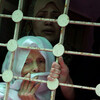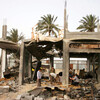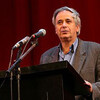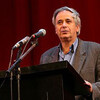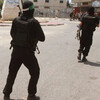
The Best Runner in the Class (Part 2)
28 May 2007
Fatima knew in a timeless way, in those days of May 1948, that the Jews were coming. For the last six months shreds from the daily news — traditionally the domain of the men in the village — had reached her. She was aware that the British were leaving and that the Jews were occupying nearby villages at a frightening rate. She also heard the men complaining about the Arab world’s betrayal: its leaders made inflammatory speeches, promising to send soldiers to save Palestine, but not matching their rhetoric by any real action. PART 2 Read more about The Best Runner in the Class (Part 2)


